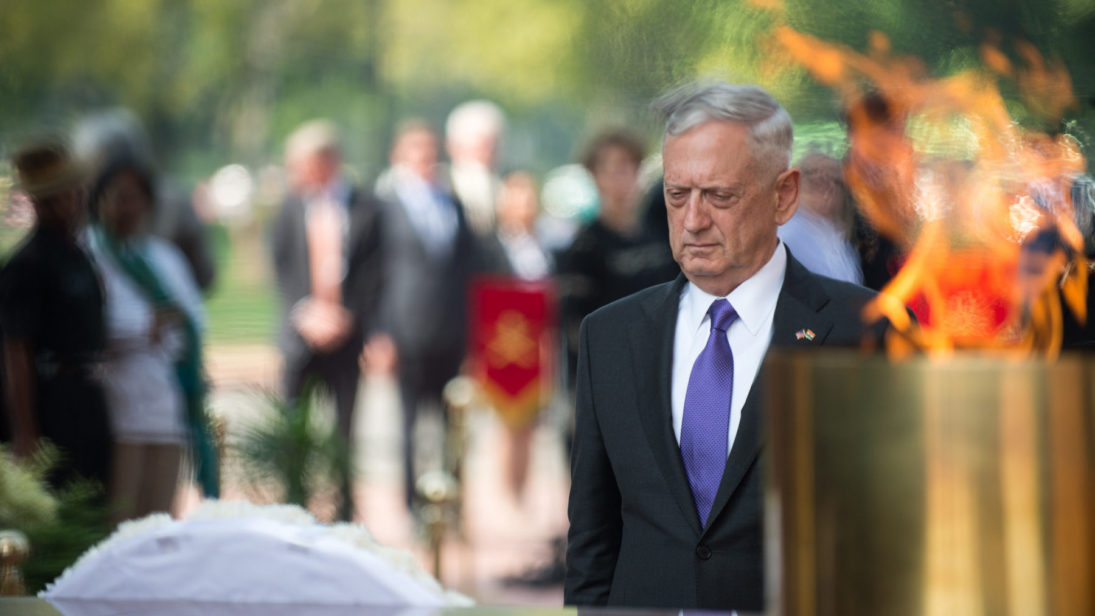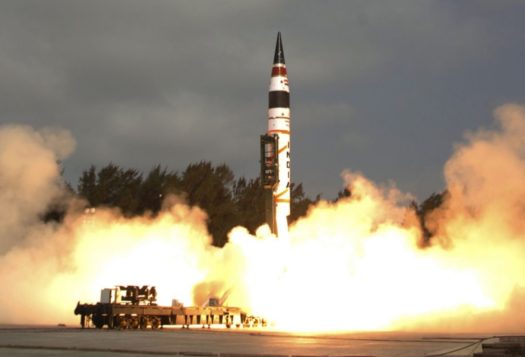
A New Era of Diplomatic Maneuvering: India and the United States in Afghanistan
By Shreyas Deshmukh
This week, U.S. Defense Secretary Jim Mattis traveled to India in the first U.S. cabinet-level visit to India during the Trump administration and the first high-profile meeting following the announcement of President Trump’s new Afghanistan policy in August. Three important themes dominated discussions between India’s new Defence Minister, Nirmala Sitharaman, and Secretary Mattis: an ongoing defense technology sharing agreement called the Defense Technology and Trade Initiative (DTTI), maritime security in the Asia Pacific and Indian Ocean region, and India-U.S. cooperation in Afghanistan. These first two themes—defense trade and maritime security—have been a mainstay of such strategic dialogues between India and the United States since the Obama Administration’s former Defense Secretary, Ashton Carter, took office in 2015. However, the Obama administration typically took a cautious approach on India’s role in Afghanistan. Now, the new American president has brought India out to center stage on Afghanistan.
In particular, the Trump administration has asked India to enhance its engagement in Afghanistan “especially in the area of economic assistance and development.” Indian political observers largely welcomed this policy change. Days prior to Mattis’ visit, the second India-Afghanistan Strategic Partnership Council meeting took place, during which the Indian government promised to invest in 116 new, high-impact development projects in 31 suburban and rural communities in Afghanistan. With regards to the security dimension, while Sitharaman unequivocally stated India will not deploy troops in Afghanistan, India has shown interest in expanding its existing military training program in Indian military academies to Afghan police officers.
Despite the increasing convergence between the United States and India over Afghanistan, the U.S. emphasis on Indian involvement has ruffled many feathers, particularly in Pakistan, and may bring about some interesting geopolitical shifts in the future. For example, Pakistan’s Foreign Minister, Khawaja Muhammad Asif, has sought support from China, Turkey, and Iran regarding the United States’ harsher line on Pakistani involvement in Afghanistan. Pakistan’s Army Chief, General Qamar Javed Bajwa, will visit Russia next week as well.
In sum, Mattis’ important visit to India indicates the status quo in Afghanistan is shifting and the diplomatic maneuvering has begun with, as of yet, unclear effects on Afghanistan’s stability. However, India’s role in Afghanistan will continue to remain vital.
India, Afghanistan and U.S.-Pakistan Divergence
By Muhammad Faisal
Pakistan closely followed U.S. Defense Secretary James Mattis’ maiden visit to New Delhi earlier this week. For Islamabad, the visit assumed particular significance in the backdrop of the new South Asia strategy announced by President Donald Trump in late August. Two issues were of direct relevance to Islamabad: India’s role in Afghanistan and U.S. views on terrorism in the region.
Pakistan was relieved when India’s new Defence Minister, Nirmala Sitharaman, categorically stated that “there shall not be any boots on the ground from India” in Afghanistan. Islamabad has opposed Washington’s call for New Delhi to play a security role in Afghanistan and emphasized that India “cannot be a net security provider” in the region. In this context, Indian reluctance to take on additional security responsibilities in Afghanistan is a relief. However, Secretary Mattis’ emphasis on the crucial role of India in the security and stability of Afghanistan and in the region raised some eyebrows. Islamabad will, undoubtedly, closely watch if India expands its security footprint via other means, including through security cooperation, military training, or the provision of arms to strengthen Afghan security forces.
On the issue of terrorism, Islamabad has been facing renewed pressure from Washington in recent weeks. Meanwhile, India and Pakistan have accused each other of supporting terrorism against the other. Thus, Islamabad has been wary of Washington lending support to the Indian position on the issue of terrorism in the Indo-Pak relationship. Defense Minister Sitharaman and Secretary Mattis used similar language in their public remarks when talking of terrorism, in an unmistakable reference to Pakistan, with Mattis saying “there can be no tolerance of terrorist safe havens.” In fact, Sitharaman went a step further and made public private remarks Mattis made during his meeting with Indian Prime Minister Narendra Modi and requested Mattis to raise the issue of terrorism whenever he visits Pakistan. As such, U.S. convergence with India on the issue of terrorism will likely increase distrust between Islamabad and Washington. This divergence will deepen at a time when Pakistan and the United States need to engage in candid talks on the future course of action in Afghanistan.
***
Image: Jim Mattis via Flickr.


